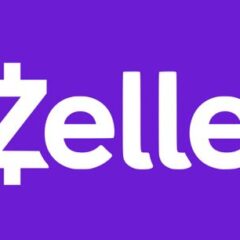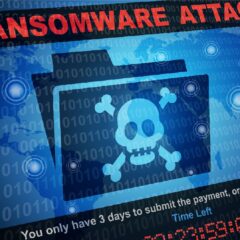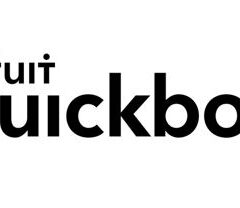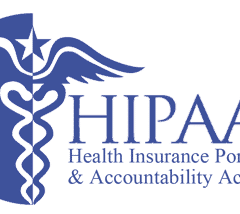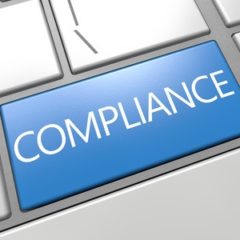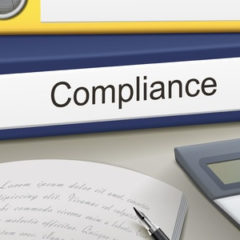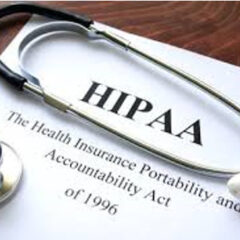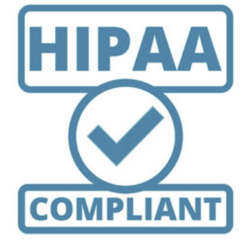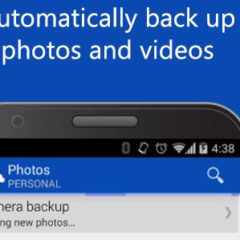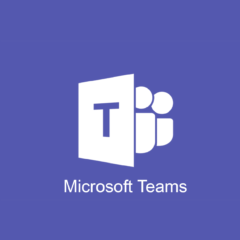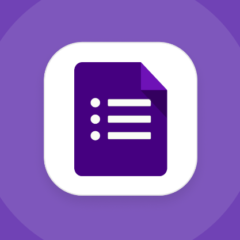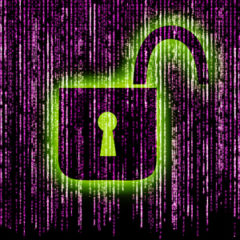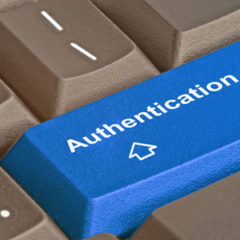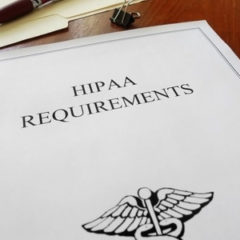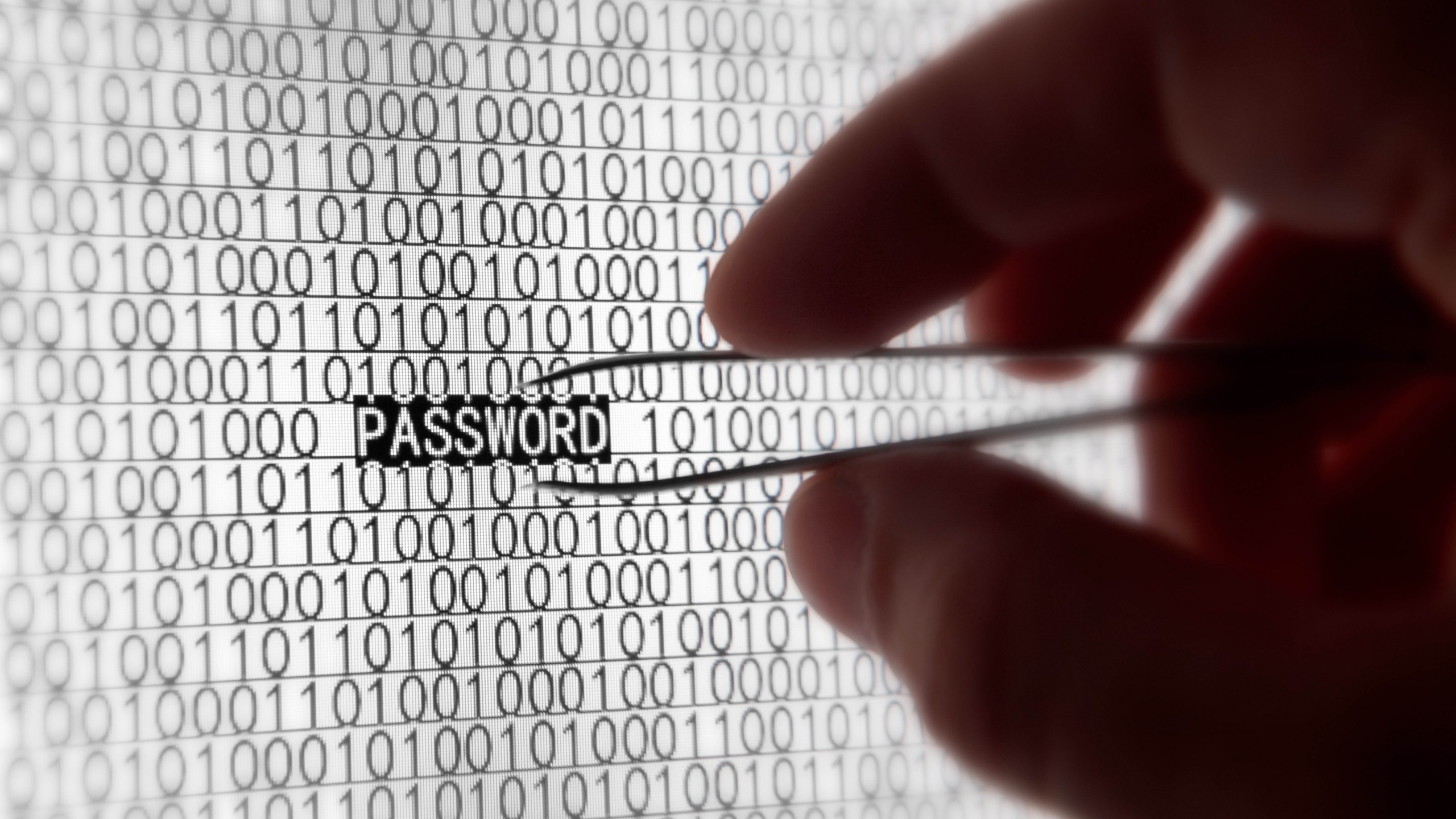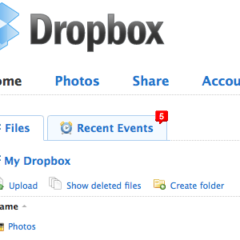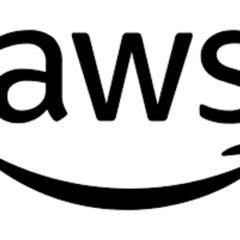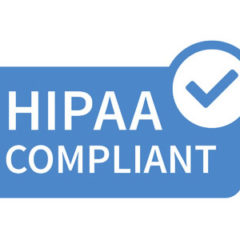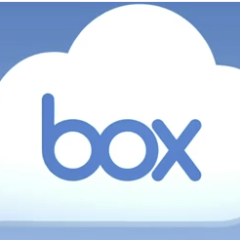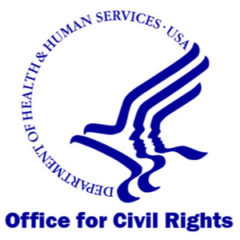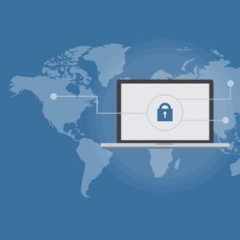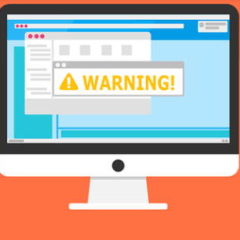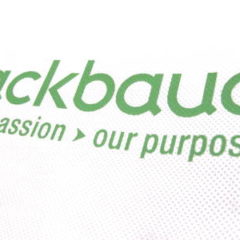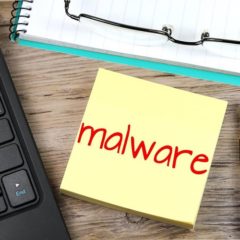Value of Strong Cybersecurity Programs and Guidance on Informed Consent Requirements
Companies with Strong Cybersecurity Programs Get Higher Returns for Shareholders Investing in cybersecurity measures aids in preventing data breaches, and evading regulatory penalties. According to a recent report by Diligent Institute and Bitsight, organizations with strong cybersecurity programs generally exhibit improved financial performance and generate higher profits for their investors. Diligent Institute and Bitsight conducted...
Cyberattacks and Data Breaches Reported by Ernest Health Hospitals, Wyndemere Senior Care, Baylor College of Medicine and Harvard Pilgrim Health Care
Patient Data Theft from Several Ernest Health Hospitals Ernest Health manages rehabilitation and long-term acute care hospitals located in Arizona, Colorado, California, Indiana, Idaho, Montana, Ohio, New Mexico, South Carolina, Texas, Utah, Wyoming, and Wisconsin. Ernest Health patients were recently notified about a data security incident that affected their personal and protected health information (PHI). On February 1, 2024,...
$7.5M Theft of Grant Fund Explained by HHS
Senator Bill Cassidy, M.D. (R-LA), ranking member of the Senate Health, Education, Labor, and Pensions (HELP) Committee, has questioned the Department of Health and Human Services (HHS) regarding a 2023 cyberattack that involved the theft of grant funds worth millions of dollars and the inability of the HHS to inform Congress regarding the incident. In January 2024, Bloomberg publicized a report regarding a hacking incident that...
Is it Possible to Have HIPAA Compliant Gmail?
It is possible to have HIPAA compliant Gmail if you subscribe to a Google Workspace account that supports HIPAA compliance, if the products included in the Workspace account are configured to support HIPAA compliance, and if the Gmail service is used in compliance with the Privacy Rule standards relating to permissible uses and disclosures. When an individual or organization qualifies as a HIPAA covered entity or business associate,...
OCR Opens HIPAA Compliance Investigation of Change Healthcare
The HHS’ Office for Civil Rights started the investigation of Change Healthcare three weeks after its cyberattack on February 21, 2024. Usually, OCR’s cyberattack and data breach investigations are started a few months after the breach report submission. Sometimes, it investigates years after the breach happened. In this case, the data breach is not yet reported to OCR because it is still being investigated. Change Healthcare has just...
Is Zelle HIPAA Compliant?
Zelle is not required to be HIPAA compliant due to a clause in the text of HIPAA that exempts payment processors from complying with HIPAA. However, covered entities that offer Zelle as a payment option should implement procedures for making the use of Zelle HIPAA compliant. When covered entities accept payments directly from plan members and patients, it is not true that the payment options provided have to be HIPAA compliant payment...
Legislative Revisions to Enhance Health Data Privacy
Senator Bill Cassidy (R-LA), who is a member of the U.S. Senate Health, Education, Labor, and Pensions (HELP) Committee, has filed a white paper that requests for information (RFI) suggesting revisions to the Health Insurance Portability and Accountability Act (HIPAA) to enhance health data privacy protections and prompts Congress to do something to broaden privacy protections for all health information. The white paper entitled...
Lurie Children’s Hospital Ransomware Attack and UNITE HERE Data Breach
EHR System of Lurie Children’s Hospital Now Restored One Month After Ransomware Attack Ann & Robert H. Lurie Children’s Hospital located in Chicago encountered a ransomware attack that resulted in the deactivation of its phone, email, and health record systems. Lurie Children’s Hospital, which serves more than 220,000 patients annually, discovered a breach of its systems on January 31, 2024, and has reported that an identified...
Change Healthcare Faces Lawsuit While Personal Touch Holding Corp Settles Lawsuit
Multiple Class Action Lawsuits Against Change Healthcare Due to Ransomware Attack On February 21, 2024, Change Healthcare encountered a Blackcat ransomware attack and has not yet recuperated from the incident, with all systems still not accessible online two weeks after the ransomware attack. The Blackcat ransomware gang professed to have stolen 6TB of information before file encryption and the affiliate responsible for the attack...
OCR’s HIPAA Compliance and Data Breaches Annual Report
The Department of Health and Human Services (HHS) Office for Civil Rights has sent its annual reports to Congress regarding compliance with the HIPAA Privacy, Security, and Breach Notification Rule and exposure of unsecured protected health information (PHI) for 2022. HIPAA Compliance in 2022 OCR details in the yearly report that large data breaches have increased 107% from 2018 to 2022. Concerns concerning possible HIPAA violations...
Cyberattack Leader Faces 40 Years Imprisonment and LockBit RaaS Infrastructure Operations Disrupted
Leader of Gang Responsible for the Attack on University of Vermont Medical Center Looking at 40 Years Imprisonment A Ukrainian male charged with being the leader of groups who attacked thousands of enterprise computers by using malware has admitted in federal court in Nebraska to one count of conspiracy to do wire fraud and one count of conspiracy to violate U.S. anti-racketeering rules. One victim, the University of Vermont Medical...
Is PayPal HIPAA Compliant?
PayPal is not required to be HIPAA compliant for payment processing activities when a payment collected on behalf of a covered entity relates to a payment for health care or health insurance. However, PayPal does not meet the requirements to be HIPAA compliant for any other service or activity. In addition, because of concerns about PayPal’s Privacy Policy, it is not advisable to disclose any sensitive personal information to PayPal....
Is Ivy Pay HIPAA Compliant?
Ivy Pay is HIPAA compliant for therapists who are required to comply with HIPAA due to qualifying as a covered or hybrid entity, or qualifying as a business associate when providing a service for or on behalf of a covered entity that involves the creation, receipt, storage, or transmission of Protected Health Information. When healthcare providers conduct or outsource electronic healthcare transactions for which the Secretary for...
Why Cybercriminals Target the Healthcare Sector and Why We Should Care
According to the HHS Office for Civil Rights, 2023 saw more than 116 million personal patient records compromised across 655 breaches. When personal identifiable information (PII) is compromised, it can be a direct attack on a facility or it can be an attack on a third-party company the healthcare facility has outsourced their digital records to. But have the frequent PII breach headlines desensitized us to the real problem, which is...
Is Intuit QuickBooks HIPAA Compliant?
Intuit QuickBooks is not HIPAA compliant unless the downloadable version of the software is deployed in a HIPAA compliant hosting service that prevents Intuit from accessing Protected Health Information (PHI) used in accounting and management activities. As this option is rarely cost-effective, it is recommended healthcare providers that want to use PHI with accounting and management software look for a QuickBooks HIPAA compliant...
7 Facts about Security Breaches in Healthcare
Security breaches in healthcare are on the increase; and, although there has been a decline in the average number of records exposed per security breach, a cause for concern is that a growing proportion of healthcare security breaches are attributable to hacking and IT incidents. Since the passage of the HITECH Act in 2009, health plans, health care clearinghouses, and healthcare providers – collectively known as HIPAA Covered...
Is it HIPAA Compliant to Use Marketo?
It is HIPAA compliant to use Marketo Engage to create, collect, maintain, and transmit Protected Health Information (PHI) if the automated marketing platform is part of an Experience Cloud for Healthcare subscription, if the subscription is supported by a Business Associate Agreement with Adobe, and if Marketo Engage is configured to comply with the appropriate Security Rule safeguards. Even when these conditions are met, it may also...
Is Stripe HIPAA compliant?
Stripe does not have to be HIPAA compliant to provide payment processing services to HIPAA covered entities and business associates because payment processing services are exempted from HIPAA with regards to uses and disclosures of PHI. However, if any of Stripe’s other services are intended to be used by a covered entity or business associate to create, collect, maintain, or transmit PHI, it is important to know is Stripe HIPAA...
What does the HIPAA Omnibus Rule Mandate?
The HIPAA Omnibus Rule mandates changes to the Privacy, Security, Enforcement, and Breach Notification Rules to implement some – but not all – of the privacy provisions required by Subtitle D of the HITECH Act. The HIPAA Omnibus Rule also mandates changes to the Privacy Rule to prohibit health plans from using genetic information for underwriting purposes. What is the HIPAA Omnibus Rule? The HIPAA Omnibus Rule is a Rule...
HIPAA Changes 2024
HIPAA changes – and changes to other Rules that impact HIPAA compliance – happen more frequently than many people appreciate; but, because they have a limited impact on covered entities and business associates, they are often overlooked. This article looks at some of the recent changes to HIPAA and HIPAA compliance, and looks ahead to potentially more substantial HIPAA changes in 2024. Since the publication of the HIPAA Omnibus Final...
What is Considered PHI?
PHI is considered to be health, treatment, or payment information – or any associated identifying information – that is created, received, maintained, or transmitted by a HIPAA regulated entity. PHI is an acronym for Protected Health Information – a term used in the healthcare and health insurance industries to describe individually identifiable health information subject to the privacy and security regulations of the Health Insurance...
Why Was HIPAA Created?
HIPAA was created to help individuals with health problems obtain health insurance and to make it easier for employees who change jobs or lose their jobs to maintain adequate coverage. The Act also enabled group purchasing by small businesses to increase their purchasing power in the health insurance market. The Background to HIPAA When Bill Clinton won the presidential election in 1992, one of the reasons for his success was a...
HIPAA Compliance for Home Health Care
HIPAA compliance for home health care workers can be especially challenging due to working in multiple – and sometimes unfamiliar – environments and often encountering scenarios that do not occur in purpose-built healthcare facilities. Home health care workers provide a valuable service to patients in the community. As well as visiting patients unable to go to a healthcare facility and providing feedback to physicians, home health...
3 HIPAA Violation Consequences That Are Often Overlooked
The three HIPAA violation consequences most often overlooked affect individuals, healthcare organizations, and the timeliness of care in ways not often considered. HIPAA violations occur more often than many people are aware of because the only public source of information about HIPAA violations is HHS’ Office for Civil Rights (OCR). Complaints made directly to healthcare organizations and sanctions imposed on members of the workforce...
American Hospital Association Files Lawsuit Against HHS Over Tracking Technology Guidance
In December 2022, the U.S. Department of Health and Human Services’ Office for Civil Rights (OCR) issued guidance for entities regulated by the Health Insurance Portability and Accountability Act (HIPAA) on the use of pixels and other website tracking technologies. According to the guidance, these technologies were essentially banned, as they allowed individually identifiable health information to be captured on websites and apps with...
Who Created HIPAA?
The people who created HIPAA in the context of the Rules healthcare organizations have to comply with were Donna Shalala and her team at the Department of Health and Human Services. If Donna Shalala is a new name to you, this article explains who she was and her role in the creation of HIPAA. Donna Shalala is the longest-serving Secretary for Health and Human Services (HHS), having been appointed to the role in 1993 by President Bill...
How Long Does It Take to Get HIPAA Certified?
The length of time it takes to get HIPAA certified depends on who is getting certified, the reason for getting certified, the criteria for certification, and how much of the criteria already exists. Consequently, there is no definitive answer to how long does it take to get HIPAA certified. Taking these variables one-by-one, if an individual takes a HIPAA training course to improve their job prospects, and a certificate of achievement...
The Role of the HIPAA Technical Safeguards
The HIPAA Technical Safeguards play an important role in HIPAA compliance inasmuch as they are designed to protect and control access to electronic Protected Health Information (ePHI). The safeguards and the standards within them provide a framework for covered entities and business associates to help ensure the confidentiality, integrity, and availability of ePHI. Although they were published more than twenty years ago, the HIPAA...
How to Conduct an Effective HIPAA Security Risk Assessment
An effective HIPAA security risk assessment enables covered entities and business associates to identify threats to the confidentiality, integrity, and availability of electronic PHI, and to implement policies and procedures that prevent, detect, contain, and correct security violations. The requirement to conduct a HIPAA security risk assessment appears in the Administrative Safeguards of the Security Rule (45 CFR §164.308). When...
HIPAA and Social Media Policies
There are no specific HIPAA and social media standards because the HIPAA Administrative Simplification Regulations were published years before most people had access to social media. Consequently, healthcare organizations must develop and enforce social media policies that comply with HIPAA based on a risk assessment to identify potential threats to PHI. Under §164.306(a) of the Security Rule, covered entities and business associates...
Why is HIPAA Training Important?
HIPAA training is important because it equips healthcare professionals with the knowledge and skills needed to protect patient privacy, prevent data breaches, ensure legal compliance, foster ethical healthcare practices, and maintain trust in the healthcare system, thereby upholding the integrity and security of sensitive health information. HIPAA training serves as a guardian of patient privacy, ensuring that healthcare professionals...
HIPAA Compliance Training for Employees
HIPAA compliance training for all employees, including medical staff, healthcare administrators, and IT staff, is important because it equips these diverse professionals with the knowledge, skills, and ethical principles necessary to collectively protect patient privacy, uphold the confidentiality of sensitive health information, ensure legal compliance with the HIPAA, and foster a culture of trust and integrity within healthcare...
Pros and Cons of HIPAA
HIPAA compliance offers benefits such as safeguarding sensitive data, empowering patients with rights, ensuring data security and confidentiality, fostering standardized healthcare transactions, and maintaining insurance coverage portability, but its implementation involves administrative burdens, costs, potential hindrance to innovation and research, complexities in patient communication, legal consequences for violations,...
Benefits of HIPAA Compliance
HIPAA compliance yields benefits including enhanced patient data security, privacy protection, improved trust through transparent handling of personal health information, standardized and efficient healthcare transactions, patient empowerment through control over their data, and the preservation of health insurance coverage portability during job transitions or life events. HIPAA compliance has brought about a series of significant...
Is Microsoft OneDrive HIPAA Compliant?
Many organizations in the healthcare industry take advantage of cloud storage services because of their convenience and cost-effectiveness. Microsoft OneDrive is one of the most popular cloud storage services as it is included in all Microsoft business subscriptions; but is OneDrive HIPAA complaint and suitable for storing Protected Health Information in the cloud? The answer to the question is OneDrive HIPAA compliant is that no...
Is WhatsApp HIPAA Compliant?
WhatsApp is widely used in healthcare organizations to accelerate workflows and improve patient outcomes, but is WhatsApp HIPAA compliant and can the messaging platform be used to send and receive Protected Health Information? In 2016, WhatsApp announced the implementation of end-to-end encryption across all web and mobile apps. Not only are chat messages encrypted, but also images, attachments, and voice calls. In theory, this would...
What Does it Take to Make Microsoft Teams HIPAA Compliant?
To make Microsoft Teams HIPAA compliant, it is necessary to select a plan with the capabilities to support compliance, configure the platform to meet the requirements of the Security Rule, and train members of the workforce how to use Microsoft Teams in compliance with HIPAA. It is also necessary to accept the terms of Microsoft’s Business Associate Agreement. Many businesses in the healthcare industry take advantage of Microsoft...
How to Make Google Forms HIPAA Compliant
HIPAA Covered Entities and Business Associates need to know how to make Google Forms HIPAA compliant before using the Workspace service to collect, store, or share Protected Health Information (PHI). Google Forms is a web-based service that is part of the Google Workspace suite of productivity and collaboration tools. The service can be used by healthcare organizations to create surveys and obtain feedback from employees and patients...
4 Out of 10 Medical Devices Have Unpatched Critical Vulnerabilities
A new report from the cybersecurity firm Armis has identified the riskiest connected medical devices used by hospitals in the United States. Connected medical devices are a security weak point, and each year many new vulnerabilities are detected. One of the main problems for healthcare organizations is keeping on top of patching, which can be a challenge for connected medical devices as they are constantly in use. One of the biggest...
HB 300 Training Requirements
Information on the HB 300 training requirements for companies, organizations, and individuals that do business with Texas residents that involves access to protected health information and/or sensitive personal information. What is Texas HB 300? HB 300 – Texas House Bill 300 – was passed and signed into law by Texas Governor Rick Perry in June 2011 and took effect on September 1, 2012. The bill amended existing state laws such...
Healthcare Providers, Google Meet and HIPAA Compliance
For the past few years, the good faith use of Google Meet and HIPAA compliance has not been an issue for healthcare providers due to OCR’s Notice of Enforcement Discretion for telehealth during the COVID-19 pandemic. However, with the COVID-19 public health emergency about to expire, healthcare providers will have to start using Google Meet in compliance with HIPAA. During the COVID-19 pandemic, the use of chat, phone, and video...
What Makes an Electronic Signature HIPAA Compliant?
The Department of Health and Human Services has not issued specific guidance about what makes an electronic signature HIPAA compliant other than stipulating “any electronic signature used will result in a legally binding contract under applicable State or other law”. However, this may soon be about to change. In the original text of the Health Insurance Portability and Accountability Act (HIPAA), the Secretary for Health and Human...
HIPAA Security Rule Failures Land Banner Health with $1.25M Financial Penalty
Banner Health has agreed to settle alleged violations of the HIPAA Security Rule with the U.S. Department of Health and Human Services’ Office for Civil Rights (OCR) and will pay a $1.25 million financial penalty. Banner Health will also adopt a corrective action plan to ensure full compliance with the HIPAA Security Rule and will be monitored by OCR for two years. The OCR investigation into HIPAA Security Rule compliance was...
Does HIPAA Apply to Employers?
The answer to the question does HIPAA apply to employers is complicated for, although the Health Insurance Portability and Accountability Act impacts around half of employers, only a small percentage of employers are required to comply with the Privacy, Security, and Breach Notification standards of the Administrative Simplification provisions. According to a September 2022 report compiled by the Bureau of Labor Statistics, 70% of...
Does HIPAA Apply to Schools?
In most cases, HIPAA compliance is not applicable to education institutions as they are not deemed HIPAA covered entities, but in some instances a school can be classified as a covered entity if healthcare services are given to students. At such times, HIPAA may still not apply because any student health information obtained would be included in the students’ education records and education records are not governed by the HIPAA...
What is HIPAA Email Archiving Compliance?
HIPAA email archiving compliance is an alternative way to describe HIPAA compliant email archiving. However, there is more than one way to archive emails; and different compliance requirements apply depending on whether emails are archived on-premises, in the cloud via an email service provider, or in the cloud via a third-party service provider. It is also important to be aware the requirements for HIPAA email archiving compliance...
HIPAA Waiver Form
A valid HIPAA waiver form is required whenever a Covered Entity wants to use or disclose Protected Health Information for a purpose not otherwise required by the General Provisions of the Administrative Requirements or permitted by the HIPAA Privacy Rule. Generally, Covered Entities are required to disclose Protected Health Information (PHI) when requested to do so by the Department of Health and Human Services (HHS) or by an...
How Often is HIPAA Training Required?
The text of the HIPAA Privacy Rule and Security Rule related to training doesn´t help answer the question how often is HIPAA training required. However, by reviewing other areas of HIPAA, it is possible to establish that the frequency of HIPAA training should be as often as it is required. Considering the importance of HIPAA and the severity of the penalties for noncompliance – fines of more than $1.9 million can be imposed per...
What are the HIPAA Password Requirements?
Before answering the question what are the HIPAA password requirements, it is important to note that passwords are not a requirement of HIPAA if Covered Entities use an alternative authentication method to “verify that a person or entity seeking access to ePHI is the one claimed” (Security Rule Standard §164.312(d)). According to the Department of Human Services´ Guide to the Technical Security Standards there are three ways in which...
HIPAA and Pictures – The Challenge of Compliance
The relationship between HIPAA and pictures is a challenging area of compliance – especially for healthcare providers who may often receive unsolicited images that do not qualify as Protected Health Information, or who have to contend with patients and visitors taking photos and videos in healthcare environments that can reveal the identities of other patients. Pictures play an important role in the provision of healthcare. They can...
Criminal Prosecutions for HIPAA Violations by Ohio Hospital Employee
Criminal prosecutions for HIPAA violations made by hospital employees are a relatively uncommon occurrence; but the recent spate of HIPAA prosecutions over the past few years suggests that has now changed. Another case of improper accessing of PHI has resulted in criminal charges for HIPAA violations being brought against an employee, this time a healthcare provider that worked at the ProMedica Bay Park Hospital in Oregon, Ohio....
What Does Pharmacy HIPAA Compliance Consist Of?
Pharmacy HIPAA compliance consists of meeting the requirements of the HIPAA Administrative Requirements, the Privacy Rule, the Security Rule, and the Breach Notification Rule. However, some pharmacies may be subject to more stringent federal and state laws whose requirements pre-empt HIPAA, while some may not be HIPAA Covered Entities at all. Pharmacies qualify as healthcare providers under HIPAA when they “dispense drugs, devices,...
HIPAA Compliance for Dental Offices
HIPAA compliance for dental offices is not as straightforward as complying with the standards of the Privacy, Security, and Breach Notification Rules because there are instances when federal or state laws can pre-empt HIPAA, when exemptions can apply, or when dental offices do not qualify as HIPAA Covered Entities. Judging by the volume of news stories covered by this website relating to data breaches and HIPAA violations, HIPAA...
What are the HIPAA Rules for Medical Devices?
Following the introduction of the HITECH Act and the passing of the HIPAA Privacy and Security Rules, Pharmaceutical companies and medical device manufacturers have had to navigate HIPAA Rules for medical devices, and this has caused some of those companies a number of problems. For any company required to record, store or transmit electronic Protected Health Information (ePHI) there are a number of considerations, the most important...
Are Pagers HIPAA Compliant?
Many healthcare providers are asking the question “are pagers HIPAA-compliant?” The simple answer to the question is no, pagers are not HIPAA-compliant, but they can be used without violating HIPAA Rules, but only if electronic Protected Health Information (ePHI) is not transmitted via pagers, or that data is encrypted. Unfortunately, just like unencrypted emails and SMS text messages, information sent via pager can be intercepted,...
Using a Business Password Manager to Share ePHI in Compliance with HIPAA
Using a business password manager to share ePHI in compliance with HIPAA is a viable alternative to other secure forms of communication if your organization implements a business password manager and the vendor is willing to sign a Business Associate Agreement. One of the most challenging requirements of HIPAA compliance is communicating ePHI in compliance with the Security Rule safeguards. Familiar channels of communication such as...
Is the Use of Mandrill by Healthcare Organizations HIPAA Compliant?
The leading automated email marketing platform Mandrill is a transactional email service that MailChimp provides. This software allows companies to automatically broadcast emails to customers and people that interact with their web apps and links to MailChimp via an API. Transactional emails are the same as marketing emails in that they are programmed to be initiated by events including password resets, confirmation of placement of...
Meta Facing Class Action Lawsuit over Use of Health Data for Serving Targeted Advertisements
Another lawsuit has been filed against Meta by a patient who claims her private healthcare information was collected without consent and was used to serve targeted advertisements related to her medical condition. The plaintiff, Jane Doe, was a patient of UCSF Medical Center and the Dignity Health Medical Foundation, who have also been named in the lawsuit. The case stems from the inclusion of Meta Pixel on web pages behind a login on...
HIPAA Compliance and Dropbox: What You Need to Know
Dropbox is a one of the most popular and successful file hosting services available online, but doe it comply with HIPAA? Dropbox claims it is now fully behind and supportive of HIPAA and HITECH Act compliance but that does not mean Dropbox itself is HIPAA compliant. No software or file sharing platform can be HIPAA compliant on its own as it depends on how the software or platform is used and the individuals using it. However,...
Does Amazon Web Services Comply with HIPAA?
Under the Healthcare Insurance Portability and Accountability Act, all providers of a product or service that ‘touches’ PHI are deemed to be business associates and are required to comply with HIPAA Rules. That means appropriate safeguards must be implemented to ensure the confidentiality, integrity, and availability of any PHI that is available through their products or services. Any healthcare entity or vendor obligated to comply...
Web Server Hacking Incident Results in $875,000 HIPAA Fine for Oklahoma State University
On January 5, 2018, Oklahoma State University – Center for Health Sciences (OSU-CHS) reported a web server hacking incident to the U.S. Department of Health and Human Services’ (HHS) Office for Civil Rights (OCR). The subsequent OCR investigation determined multiple areas of noncompliance with the Privacy, Security, and Breach Notification Rules of the Health Insurance Portability and Accountability Act (HIPAA). Yesterday, OCR...
Is Calendly HIPAA Compliant?
Is the scheduling service Calendly HIPAA compliant? The service streamlines how businesses can organize meetings – saving time and improving productivity by eliminating the confusion that results from lengthy email chains. This makes Calendly a popular service across a variety of sectors, but can it be used in the healthcare industry in a HIPAA-compliant manner? The Calendly platform integrates with a number of other...
Sharing Patient Information with Family Over the Phone
When sharing patient information with family over the phone, healthcare providers need to ensure they verify who they are speaking to, that the patient has not objected to their health information being shared, and that any details disclosed to family members comply with the HIPAA Minimum Necessary Standard. When a patient enters hospital, it is understandable that family members want to enquire about their wellbeing. One of the most...
Is SharePoint HIPAA Compliant?
It may be one of the most popular cloud services worldwide, but is SharePoint HIPAA compliant? Microsoft’s SharePoint Online service offers a collaborative cloud-based platform for the storage, management, and sharing of documents. It allows multiple users to view and edit a document simultaneously from various devices and can be integrated with other popular Microsoft applications in most Microsoft 365 and Office 365 enterprise...
Is Box HIPAA Compliant?
Is the cloud storage service Box HIPAA compliant? Box is a cloud data storage and management service that allows users to access data from different devices. However, before it can be utilized in a healthcare setting to manage and store protected health information (PHI), Covered Entities must ensure Box is HIPAA compliant. There are a number of features of Box that make it attractive for users. Once information is uploaded to its...
HIPAA Compliance Software
HIPAA compliance software is an application for overcoming the challenges of complying with HIPAA. Depending on the capabilities of the software, it can help compliance officers more easily identify gaps in compliance, more effectively eliminate gaps in compliance, and more accurately track compliance activities to ensure the organization is complying with HIPAA at all times. HIPAA compliance is a “100% task” inasmuch as if you comply...
HHS Seeks Comment on HITECH Act Requirements Concerning HIPAA Enforcement
The U.S. Department of Health and Human Services’ Office for Civil Rights (OCR) has requested comments from the public on two outstanding requirements of the Health Information Technology for Economic and Clinical Health (HITECH) Act of 2009 that relate to its enforcement of compliance with the Health Insurance Portability and Accountability Act (HIPAA). OCR is the main enforcer of HIPAA compliance and investigates complaints and data...
OCR Annouces 4 Financial Penalties to Resolve HIPAA Violations
The Department of Health and Human Services’ Office for Civil Rights has imposed four financial penalties on healthcare providers to resolve violations of the Health Insurance Portability and Accountability Act (HIPAA). Three dental practices were hit with sizable fines, one for a violation of the HIPAA Right of Access and two for impermissible disclosures of patients’ protected health information (PHI). The HIPAA Right of Access is a...
HHS’ Office for Civil Rights Director Urges HIPAA-Regulated Entities to Improve Cybersecurity
In the United States, healthcare providers, health plans, healthcare clearinghouses, and business associates of those entities are required to comply with the standards of the Health Insurance Portability and Accountability Act (HIPAA) Privacy, Security, and Breach Notification Rules. The HIPAA Security Rule calls for HIPAA-regulated entities to implement safeguards to ensure the confidentiality, integrity, and availability of...
Bipartisan Bill Proposes Creation of Commission to Investigate U.S. Health Data Privacy Laws
Bipartisan legislation has been introduced in the U.S. to create a commission to analyze federal and state health data privacy laws and make recommendations for closing regulatory privacy gaps. In the United States, the Health Insurance Portability and Accountability Act (HIPAA) sets minimum standards for privacy and security of healthcare data, including placing restrictions on uses and disclosures of personally identifiable...
Healthcare Providers Fined $425,000 by New Jersey for HIPAA and Consumer Fraud Act Violations
The New Jersey Attorney General and the Division of Consumer Affairs have announced a settlement has been agreed with three New Jersey healthcare providers to revolve an investigation into two data breaches that affected 105,200 individuals, including 80,333 New Jersey residents. The breaches occurred in 2019, the first was the result of a phishing attack and the second was a mailing error that occurred when sending notification...
HHS Imposes 5 Financial Penalties for HIPAA Right of Access Failures
The Department of Health and Human Services’ Office for Civil Rights (OCR) has announced the closure of five investigations into potential violations of the Health Insurance Portability and Accountability Act (HIPAA), all of which have resulted in financial penalties. The enforcement actions are part of OCR’s HIPAA Right of Access enforcement initiative, which was launched in late 2019. The HIPAA Right of Access gives individuals the...
$130,000 Settlement Agreed with Two New Jersey Printing Companies to Resolve Alleged HIPAA Violations
An investigation conducted by the New Jersey Division of Consumer Affairs into an unauthorized disclosure of the protected health information (PHI) of almost 56,000 New Jersey residents has been settled by New Jersey Acting Attorney General, Andrew Bruck. The two firms will pay financial penalties totaling $130,000 and have agreed to a consent order that requires them to make changes to their policies and procedures to improve data...
New Jersey Fines Infertility Clinic $495,000 for Multiple Violations of the HIPAA Rules
An investigation conducted by the New Jersey Department of Law and Public Safety Division of Consumer Affairs into a HIPAA compliance data breach at an infertility clinic has been settled, with the clinic operator agreeing to pay a financial penalty of $495,000. Diamond Institute for Infertility and Menopause, LLC (Diamond) is based in Millburn, NJ, and operates two infertility clinics in the state and one in New York. The company...
Guidance on HIPAA and COVID-19 Vaccination Status Disclosures Issued by HHS
In the United States, HIPAA compliance rules restrict uses and disclosures of healthcare data, but there has been considerable confusion about HIPAA and COVID-19 vaccination status disclosures amongst the public, and even members of Congress. The U.S. Department of Health and Human Services’ Office for Civil Rights, the main enforcer of HIPAA, has now released guidance on HIPAA and COVID-19 vaccination status disclosures to help clear...
Pediatric Care Provider Fined $80,000 for HIPAA Right of Access Violation
A pediatric hospital in Omaha, NE has agreed to settle a Department of Health and Human Services’ Office for Civil Rights (OCR) HIPAA investigation and will pay a financial penalty of $80,000 to close the case. The investigation was launched in response to a complaint from a patient who was not provided with a copy of her late daughter’s medical records in a timely manner. HIPAA gives individuals the right to obtain a copy of their...
Mid-Year HIPAA Enforcement Update
The HHS’ Office for Civil Rights has imposed 8 financial penalties on HIPAA-covered entities and business associates in the first 6 months of 2021 to resolve investigations into noncompliance with the Health Insurance Portability and Accountability Act Rules. In the first 6 months of 2020, only 1 financial penalty was imposed; however, OCR ended the year with 19 financial penalties imposed. This year, OCR has continued with its drive...
HIPAA Violation Results in Former Scripps Health Worker Being Charged for COVID-19 Unemployment Benefit Fraud
In a case being heard in San Diego, former Scripps Health employee Matthew Lombardo has been charged with felony HIPAA violations for obtaining and disclosing the protected health information of patients to his alleged co-conspirators. This is part of a Department of Justice investigation where nine San Diego residents have been charged in two separate indictments in connection with the theft of patients’ protected information and the...
US Court of Appeals Ruling Suggests Legal Action Possible for Privacy Breaches Under 14th Amendment
A ruling by the U.S. Court of Appeals for the Fourth Circuit suggests individuals whose privacy has been violated could potentially take legal action under the 14th amendment, but has confirmed that there is no private cause of action under the Health Insurance Portability and Accountability Act (HIPAA) when an individual’s privacy is violated as a result of an improper disclosure of their protected health information. The case...
HIPAA Right of Access Case Settled for $5,000 by Diabetes, Endocrinology & Lipidology Center
According to the HHS’ Office for Civil Rights (OCR), a settlement agreement has been negotiated with The Diabetes, Endocrinology & Lipidology Center, Inc. (DELC) in relation to a possible HIPAA Right of Access breach. DELC is a West Virginia-based healthcare supplier that focuses on treating endocrine disorders. In August 2019, a complaint was submitted to OCR which claimed that DELC had breached HIPAA when it didn’t respond...
HIPAA Security Rule Violations Lead to $25,000 Settlement between Clinical Laboratory & OCR
The Department of Health and Human Services’ Office for Civil Rights (OCR) says a $25,000 HIPAA settlement has been agreed with Peachstate Health Management, LLC, dba AEON Clinical Laboratories, that resolves a HIPAA case involving several HIPAA Security Rule violations. CLIA-certified laboratory, Peachstate, supplies a variety of different services to HIPAA-covered entities, including clinical and genetic testing services through its...
HIPAA Right of Access Case Involving Massachusetts Mental Health Clinic Settled for $65,000
Following a HIPAA Right of Action investigation by the HHS’ Office for Civil Rights (OCR), Arbour Hospital, a mental health clinic in Boston, MA, has agreed to pay a $65,000 HIPAA fine. OCR was made aware of a possible breach of the HIPAA Right of Access on July 5, 2019. A patient of Arbour Hospital claimed he had asked for a copy of his medical records from the hospital on May 7, 2019 but had not been given with those records inside...
Six-month Prison Term for Whistleblower Who Falsely Claimed Nurse Violated HIPAA
A six-month prison-term and $1,200 fine has been handed down to a Georgia man who falsely claimed a former acquaintance had violated patient privacy and breached the HIPAA compliance rules. Jeffrey Parker, 44, of Rincon, GA, claimed to be a HIPAA whistleblower in October 2019 and reported it HIPAA violations by an employee to the authorities. He claimed that there had been significant privacy breaches by a nurse at a Savannah, GA...
U.S. Healthcare Data Breach Report for January 2021
January witnessed a 48% month-over-month drop in the number of large healthcare data breaches, down from 62 breach incidents in December to 32 in January, according to an analysis by HIPAA Journal. While this is well beneath the 38 data breaches that are reported on average each month, it is still more than 1 data breach every day. There would have been a major drop in the amount of breached records were it not for a major data breach...
Ransomware Fact Sheet Issued by the National Cyber Investigative Joint Task Force
The National Cyber Investigative Joint Task Force (NCIJTF) has published a ransomware factsheet in order to increase awareness of the threat of ransomware attacks and provide more information which can be used to address and prevent ransomware attacks. The fact sheet was created by an interagency group of over fifteen government bodies and is primarily intended to be implemented by police and fire departments, state, local, tribal and...
Blackbaud Ransomware Attack Leads to Rady Children’s Hospital Class Action Lawsuit
In May 2020, the cloud software group Blackbaud was targeted and attacked with ransomware. As is typical in human managed ransomware attacks, data was stolen before file encryption took place. A portion of the stolen data included the fundraising databases of its healthcare customers. One of the impacted healthcare clients was Rady Children’s Hospital-San Diego, the biggest children’s hospital in California. A class action lawsuit has...
More Stringent Application of HIPAA Right of Access Rules by OCR Results in $200,000 Penalty
There is further evidence of the increasingly stringent application of the HIPAA Right of Access Rules by the HHS’ Office for Civil Rights (OCR) on healthcare providers that are not providing patients with timely access to their medical records following the announcement that a settlement had been reached with Banner Health to bring a HIPAA Right of Access investigation to a conclusion for $200,000. Under the HIPAA Privacy Rule...
OCR Confirms HIPAA Rules on Disclosures of PHI to Health Information Exchanges
The Department of Health and Human Services’ Office for Civil Rights has published guidance on the Health Insurance Portability and Accountability Act (HIPAA) Rules related to disclosures of protected health information (PHI) to health information exchanges (HIEs) for the public health activities of a public health authority (PHA). HIEs are organizations that facilitate the sharing of electronic PHI (ePHI) between more than two...
Researchers Find More than 45 Million Medical Images Stored on Unprotected Servers
More than 45 million medical images are currently exposed on unprotected servers and can be accessed freely over the internet without usernames or passwords. The medical images include metadata that includes personal and protected health information, which could be used for a variety of nefarious purposes. The unprotected images, which include MRIs, CT scans, and X-Rays were found by researchers at the CyberAngel Analyst Team, who...
Bill Passed by House Calling for HHS to Recognize Implementation of Cybersecurity Best Practices
The House Energy and Commerce Committee has passed a new bill (HR 7898) which seeks to amend the HITECH Act to require the Department of Health and Human Services to recognize whether cybersecurity best practices have been implemented by HIPAA-covered groups and business associates when making specific determinations, such as fines following security breaches or for other regulatory aims. The HIPAA Safe Harbor Bill, if passed into...
University of Cincinnati Medical Center HIPAA Right of Access Failure Results in $65,000 Fine
The 18th HIPAA financial penalty of 2020, the 12th fine under its HIPAA Right of Access enforcement initiative, has been revealed by HHS’ Office for Civil Rights. The most recent HIPAA compliance fine of $65,000 was sanctioned against the University of Cincinnati Medical Center, LLC (UCMC) and grew out of a complaint submitted by OCR on May 30, 2019 from a patient who had issued a request to UCMC on February 22, 2019 seeking an...
10th HIPAA Fine Under Right of Access Initiative Revealed by Office for Civil Rights
The 10th financial penalty under its HIPAA Right of Access enforcement initiative has been revealed by the U.S. Department of Health and Human Services’ Office for Civil Rights. California-based Riverside Psychiatric Medical Group has committed to paying a financial penalty of $25,000 to settle a possible HIPAA Right of Access breach and will implement a corrective action plan to see to it that compliance with this provision of the...
Three Data Breaches Result in $1m HIPAA Penalty for Aetna
Aetna Life Insurance Company and the affiliated covered entity (Aetna) have settled a HIPAA compliance violation case with the Department of Health and Human Services’ Office for Civil Rights (OCR) and has agreed to pay a financial penalty of $1 million. OCR investigated Aetna after receiving three breach reports in 6 months in 2017 from the health insurer. The initial data breach was made known to OCR in June 2017 and was due to the...
OCR HIPAA Right of Access Initiative Results in 9th Financial Penalty
The HHS’ Office for Civil Rights (OCR) is maintaining the pace in its crackdown on healthcare groups that are 1005 adhering to the HIPAA right of access. Recently, OCR revealed that it is sanctioning its ninth enforcement action against a HIPAA-covered group in relation to the failure to provide patients with timely access to their medical records at a reasonable price. HIPAA allocates patients permission to view or receive a copy of...
MHealth App Developers and Cloud Services Providers New Resources made Available by OCR
New resources for mobile health app developers have been made available by the Department of Health and Human Services’ Office for Civil Rights (OCR). This comes with a planned update and rebranding of its Health App Developer Portal. The portal – Resources for Mobile Health Apps Developers – supplies information for mobile health app developers on the HIPAA Privacy, Security, and Breach Notification Rules and how they are relevant...
Citrix Endpoint Management/XenMobile Server Patches Released
Patches have been released to address two critical vulnerabilities in Citrix Endpoint Management (CEM) / XenMobile Server. The flaws could be exploited by an unauthenticated individual to access domain account credentials, take complete management of a XenMobile Server, and view VPN, email, and web applications and obtain sensitive corporate information. One of the flaws was discovered by Andrey Medov of Positive Technologies, who...
Ban on HHS Funding a National Patient Identifier System Removed by House of Representatives
The House of Representatives has voted to remove the ban on the Department of Health and Human Services using federal funds to create a national patient identifier system. The Health Insurance Portability and Accountability Act (HIPAA) mandated the creation of a national patient identifier system. As the name indicates, a national patient identifier system would see each person in the United States issued with a permanent, unique...
Rhode Island Health System Hit with $1 Million Fine for Noncompliance with HIPAA Rules
The Rhode Island non-profit health system, Lifespan Health System Affiliated Covered Entity (Lifespan), has been fined $1,040,000 by the Department of Health and Human Services’ Office for Civil Rights for violations of the Health Insurance Portability and Accountability Act (HIPAA) Rules. Had HIPAA Rules been followed, a data breach of 20,431 healthcare records would have been avoided. Lifespan was investigated by OCR following the...
Lack of Encryption & Other HIPAA Breaches Leads to $1m HIPAA Penalty for Lifespan
The HHS’ Office for Civil Rights has sanctioned a $1,040,000 HIPAA penalty on Lifespan Health System Affiliated Covered Entity (Lifespan ACE)after identifying systemic noncompliance with the HIPAA Rules. Lifespan is a not-for-profit health system located in Rhode Island that has many healthcare provider affiliates in the state. On April 21, 2017, a breach report was submitted with OCR by Lifespan Corporation, the parent company and...
Philips Ultrasound Systems Vulnerability Discovered
An authentication bypass vulnerability affecting Philips Ultrasound Systems that could targeted by a hacker to view or modify data has been discovered. The flaw is caused by the presence of an alternative path or channel that can be implemented to bypass authentication controls.The flaw is tracked as CVE-2020-14477. This is a low severity flaw which has been assigned a CVSS v3 base score of 3.6 out of 10. To target the vulnerability,...




